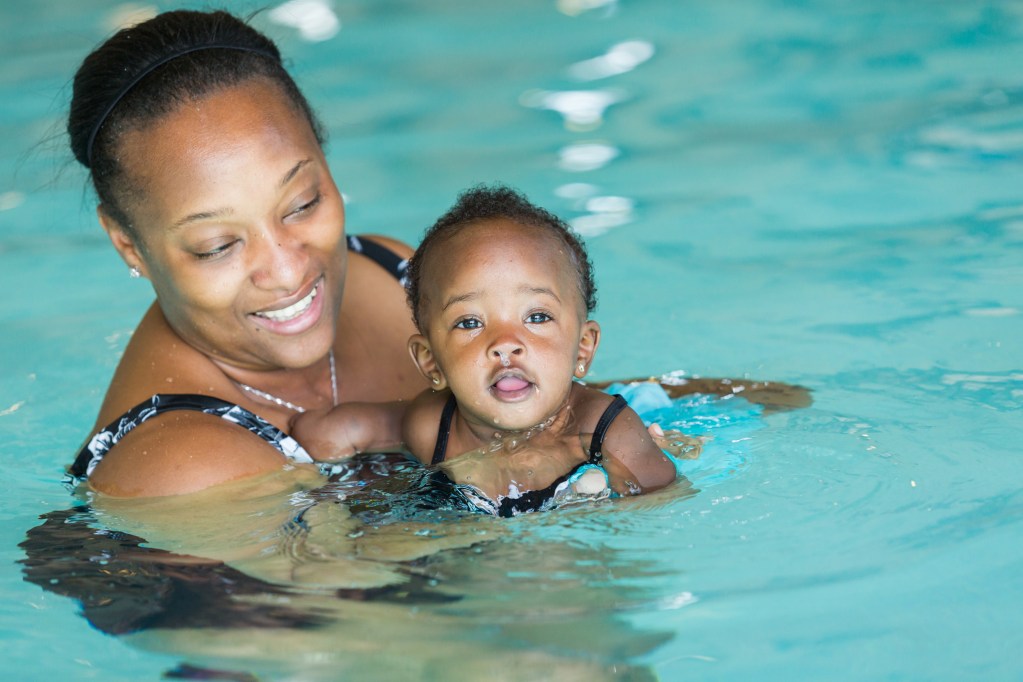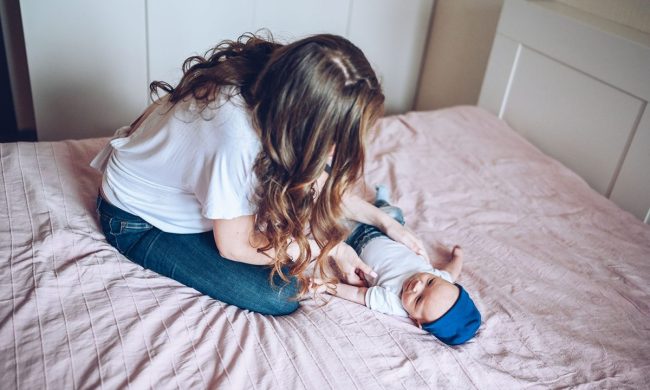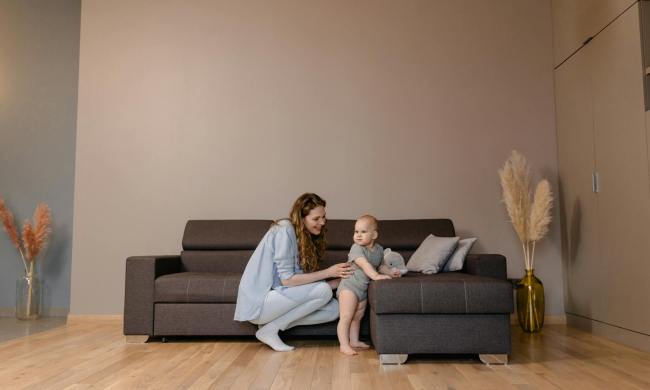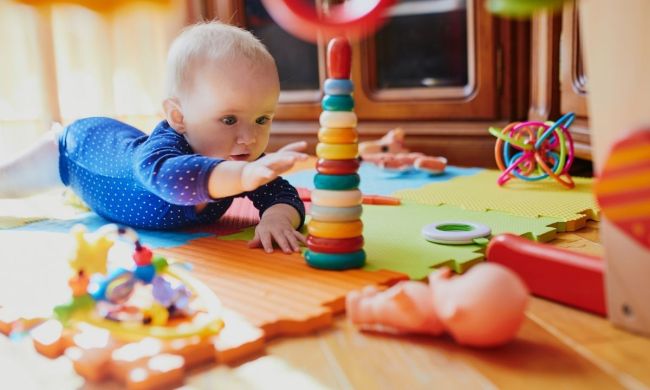Once the weather gets warmer, many families are eager to hit the pool for some relief from the heat, but those with young infants at home may find themselves wondering, “When can babies go in the pool?” Whether it’s signing up for local swimming classes to teach your little one basic water safety or for recreation and relaxation on a hot summer day, taking your baby in the pool can be a lot of fun.
There are, however, some basic guidelines experts recommend about how old your baby should be before they join the rest of the family. Before you go for a dip this summer, here’s what you need to know about when babies can go in the pool.
General guidelines

Although the AAP has no official age recommendation for when babies can go in a pool, most pediatricians suggest waiting until an infant is at least 6 months old. One of the main reasons for this is that babies are typically able to hold their heads up on their own by this age, which is an important factor for their safety.
You may also want to minimize the time in the water at this young age, constantly monitoring your child to ensure they aren’t cold. If they do start to shiver make sure to take them out of the water and dry off immediately. You can also alternate time in the pool with time out to ensure your baby is comfortable and happy in the water. Chlorine typically isn’t a concern unless your baby has sensitive skin or is allergic. Just ensure you are rinsing the pool water off completely when they come out of the water.
Are infant swimming lessons necessary?

Sadly, drowning is the leading cause of death of children between the ages of 1 and 4, according to the CDC, but even with that data, the AAP still doesn’t recommend swimming lessons for any child under the age of 1 year old. They state that “there is currently no evidence that infant swim programs for babies under 1 year old lower their drowning risk,” adding that enrolling in a class that helps your child get comfortable in the water is a great idea, but it should not give parents a false sense of security.
How to keep your baby safe in the water

Keeping your baby safe in the pool means always being within arm’s reach of your baby, whether they’re in or out of the water. When bringing your baby into the water with you, ensure you’re in a comfortable position to be holding your child so you can have constant contact. If you’re somewhere where you could lose your footing, you could put your child in danger. Also, remember that inflatables may be fun and offer some buoyancy for your child, but anything other than a life jacket or personal flotation device should not be used as a flotation device.
Introducing your child to the water at an early age can help foster a love of swimming and splashing in the pool from as young as 6 months old. Teaching your child proper water safety and enrolling them in age-appropriate swimming lessons can help the entire family have a fun, safe summer.




